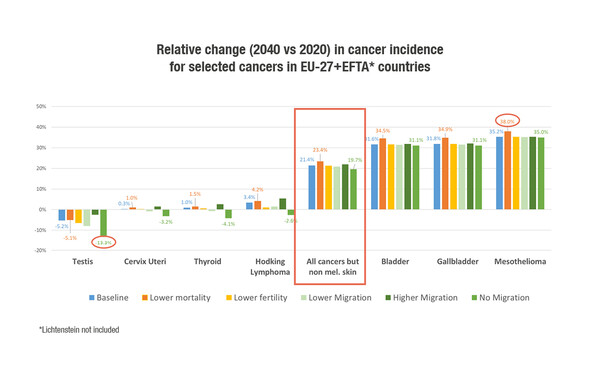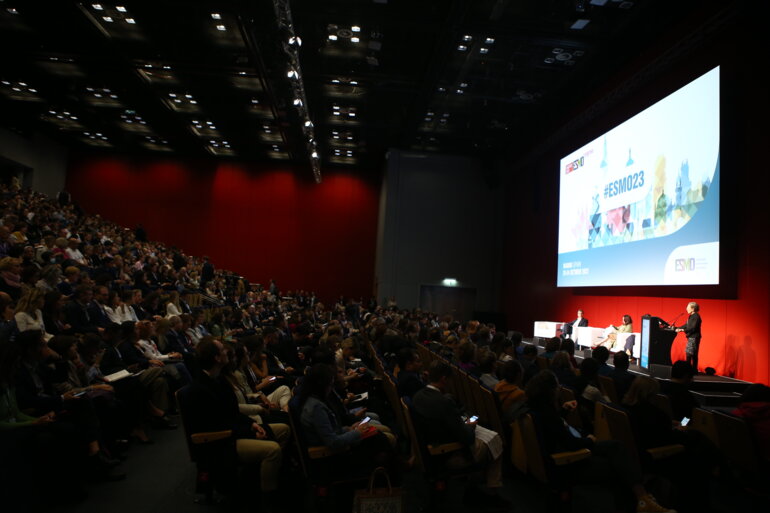Projections by the European Commission – Joint Research Centre from Ispra, Italy, estimate a 21.4% increase in cancer cases in 20 years’ time
Findings presented yesterday revealed that the number of new cancer cases in the EU and European Free Trade Association (EFTA) countries are predicted to increase by 21.4%, from 2.8 million in 2020 to 3.4 million in 2040 (Abstract 1501O_PR). Over the same period, the number of cancer deaths is predicted to rise by 32.2%, from 1.3 million in 2020 to 1.7 million by 2040.
In males, the incidence of all cancers – not including non-melanoma skin cancer – was projected to increase by 25.8%, from 1.5 million in 2020 to 1.9 million by 2040, while the figure for females was a little more optimistic, increasing by 16.2%, from 1.3 million in 2020 to 1.5 million by 2040. Estimates of deaths from these cancers were projected to increase by 36.1% in males and 27.4% in females during the same period.
The research group also made projections based on different demographic scenarios to estimate the impact of population structure changes on cancer incidence in 2040. In a scenario of lower mortality rate (life expectancy at birth + 2 years by 2070) in the general population versus 2020 figures, an even greater increase of 23.4% in cancer cases could be expected, while the lowest increase of 19.7% would ensue in a scenario of no net migration to the EU or EFTA countries (Figure). As with estimates of cancer cases, the greatest increase in the number of cancer deaths in 2040 was projected to be 35.4% in the scenario of lower mortality rate versus 2020 figures.
The researchers also estimated rates of different cancer types, determining there was large variability, from a decrease of 5.2% for cases of testicular cancer, to an increase of 35.2% in cases of mesothelioma. In the scenario of lower mortality rate, the number of cases of mesothelioma was projected to increase by as much as 38.0% in 2040. Prostate cancer was the cancer type projected to incur the greatest mortality burden in 2040 – an increase of 56.5% from 2020 figures.
The research provides an important input to health-policy planning, including establishing priorities for actions in the control of cancer across Europe.
Dyba T.A et al. Long-term estimates of cancer incidence and mortality for the EU and EFTA countries according to different demographic scenarios. ESMO Congress 2021, Abstract 1501O_PR
Proffered Paper session - Public policy, 20.09.2021, h. 13:30-14:50, Channel 5







